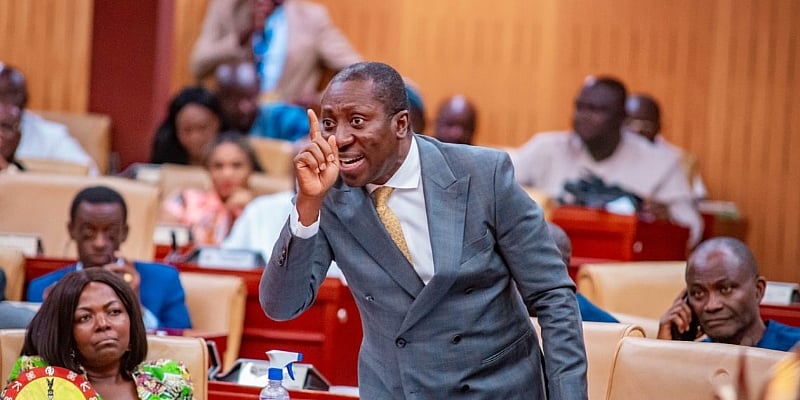In a recent political discourse within Ghana’s Parliament, Hon. Alexander Afenyo-Markin, the Majority Leader, addressed the ongoing tensions regarding the composition of the House. Despite a recent ruling by Speaker Alban Bagbin, which vacated the seats of four Members of Parliament (MPs) who chose to run as independent candidates in the upcoming December 7 elections, Afenyo-Markin emphasized that the Speaker still recognizes him as the Majority Leader. This assertion is significant because following the ruling, the National Democratic Congress (NDC) temporarily held a majority status with 136 seats, while the New Patriotic Party (NPP) reduced to 135.
The contentious situation took a dramatic turn when the Supreme Court intervened to issue a stay of execution on Speaker Bagbin’s ruling. This judicial action allowed the affected MPs, whose seats were declared vacant, to continue their parliamentary duties until a final resolution was reached regarding the legality of the Speaker’s decision. The courtroom drama illustrates the complex interplay of power and legality within Ghanaian politics, where the parliamentary majority can shift quickly based on such decisions.
Afenyo-Markin, taking to the airwaves on Peace FM’s Kokrokoo morning show, accused Speaker Bagbin of being “subtle” and “mischievous” in his approach to the situation. He underscored that while the Speaker’s actions ostensibly aimed to reflect the new parliamentary majority, Bagbin’s continued recognition of Afenyo-Markin as Majority Leader suggests a conflicted stance. This contradiction highlights the ongoing struggle for clarity in parliamentary roles and the political ramifications of such disputes.
His remarks raise questions about the influence of leadership titles in shaping perceptions of political power and the authority of the Speaker’s declarations. Afenyo-Markin’s insistence that despite the counting of seats, the Speaker refrains from designating the NDC as the majority illustrates a deeper underlying tension within the legislative body, suggesting that party loyalties and perceptions are resistant to immediate changes in numerical representation.
This scenario not only emphasizes the significance of constitutional roles but also the political tactics employed within the legislature. The ongoing disagreements reflect broader themes in governance, wherein shifting alliances and strategies create challenges for party leadership and legislative functionality. As political figures like Afenyo-Markin navigate these contentious waters, the perceptions held by both colleagues and constituents are critical in determining future alignments and potential electoral outcomes.
Ultimately, this situation encapsulates the dynamic and often tumultuous nature of parliamentary politics in Ghana, where numerical majority can transform rapidly and the responses of those in power reflect both legal frameworks and political realities. The resolution of these disputes may have lasting implications for the governance landscape in Ghana, as well as the political fortunes of the parties involved as they approach the upcoming elections.


